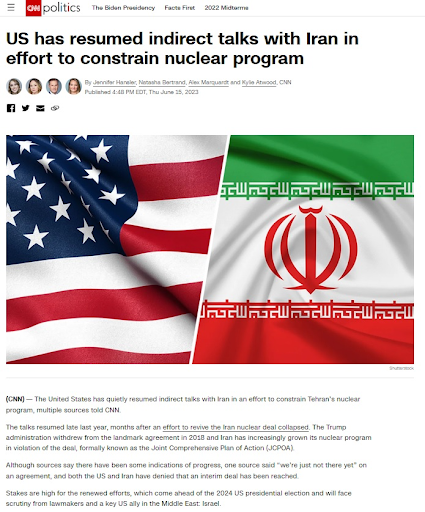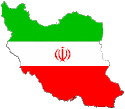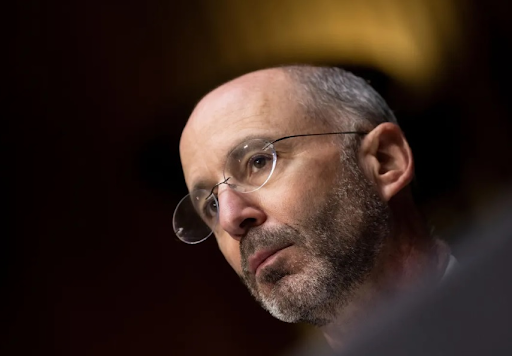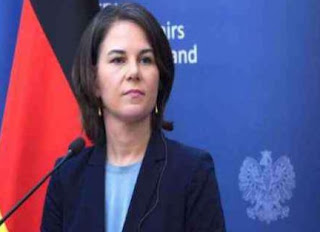
Iran’s elections: Change brings new opportunities for Iran's new president--Masoud Pezeshkian
Foreground:
Mere weeks after the tragic death of several Iranian officials including the president, Iran managed to elect a new president, while a caretaker government was headed by the vice president. The successful transition is only part of the story in a country with complex social fabric and complex relations with the world. What might be lost on many observers is the historical election of a president who represents ethnic and linguistic minorities in Iran.
Masoud Pezeshkian, born in 1954 in the city of Mahabad in West Azerbaijan Province, northeastern Iran to a deeply religious Shia family to parents of both Kurdish and Azeri background. He was raised in a religious family. He often speaks of being proud Turkish speaker. Now that he is elected president of Iran, he will be the first ethnic minority office holder in a region where Kurdish minorities are marginalized in all four countries-Iraq, Turkey, Syria, and Iran.
Being from Azerbaijan Province, he will be able to dial down
the rhetoric among Azeris who are Shia in terms of faith but Turkic in terms of
ethnicity. Having family connections to the Kurdish community, he will also be
able to address the separatist activities with which all four countries have
struggled since the end of direct colonial control of the region. His political
activism in the movement that brought about the modern Islamic republic of Iran
provide him with the credibility to work out change through the various
institutions of power. In short, this election cycle might be as significant of
a turning point as the one that took place 1981 when another Iranian president,
Mohammad Ali Rajaʾi, was
killed, and who was replaced Ali Khamenei, the current supreme leader.
Background:
Pezeshkian completed his primary education in Mahabad, West
Azerbaijan Province, and then joined the Agricultural Institute in Urmia, where
he received a diploma in food industries.
He completed his military service in 1973 in the border city
of Zabol, Sistan and Baluchestan Province, and after completing his service, he
decided to become a doctor, and received his natural diploma in 1975. A year
later, he was accepted into the medical field at Tabriz University of Medical
Sciences.
With the start of the Iran-Iraq war in 1980, Pezeshkian was
responsible for sending medical teams to the battlefronts, and was active in
many operations as a fighter and a doctor.
He completed his medical course in 1985, and began working
at the Faculty of Medicine as a physiology teacher. In 1990, he received a
specialty in general surgery from Tabriz University of Medical Sciences, and in
1993 he received a specialty in cardiac surgery from Iran University of Medical
Sciences in Tehran, and was appointed to Shahid Madani Heart Hospital in
Tabriz, and later became its head.
In 1994, he was appointed as the head of Tabriz University
of Medical Sciences, and his presidency continued until 2000. Then he was
transferred to Tehran and assumed the position of Deputy Minister of Health,
Treatment and Medical Education for 6 months.
After that, in the second term of Mr. Mohammad Khatami's
presidency, Pezeshkian assumed the position of Minister of Health, and after a
while he was questioned by the parliament, and then he left his position. In
2013, he ran for president, but his candidacy was rejected by the Guardian
Council. In 2016, he won a seat in the parliament and held a seat in parliament
for many years. Since 2008, Pezeshkian has represented the city of Tabriz in
the Iranian parliament.
He announced that he will put at the top of his government's
priorities the revival of the nuclear agreement, which is in Iran's interest,
and if it were not, former US President Donald Trump would not have withdrawn
from it.
Pezeshkian stressed that he will put an end to the
differences between political forces, which he says are the "main cause of
the country's problems," by seeking the help of the best experts and
specialists.
He promised that he would follow up on the problems of
workers, retirees and employees and work in a way that eliminates poverty,
discrimination and corruption in the country, stressing the need to deal
honestly with the public and not give empty promises, promising to involve the
people in running the country and not a specific group.
He also promised to deal positively with women's issues,
freedom of access to the Internet, constitutional rights of nationalities, and
political and social freedoms.
Pezeshkian won the Iranian presidential elections after
receiving 16,384,403 votes, compared to 13,538,179 votes for candidate Saeed
Jalili, thus becoming the ninth elected president of the Islamic Republic of
Iran, since the victory of the Islamic Revolution led by Imam Khomeini in 1979.



















































